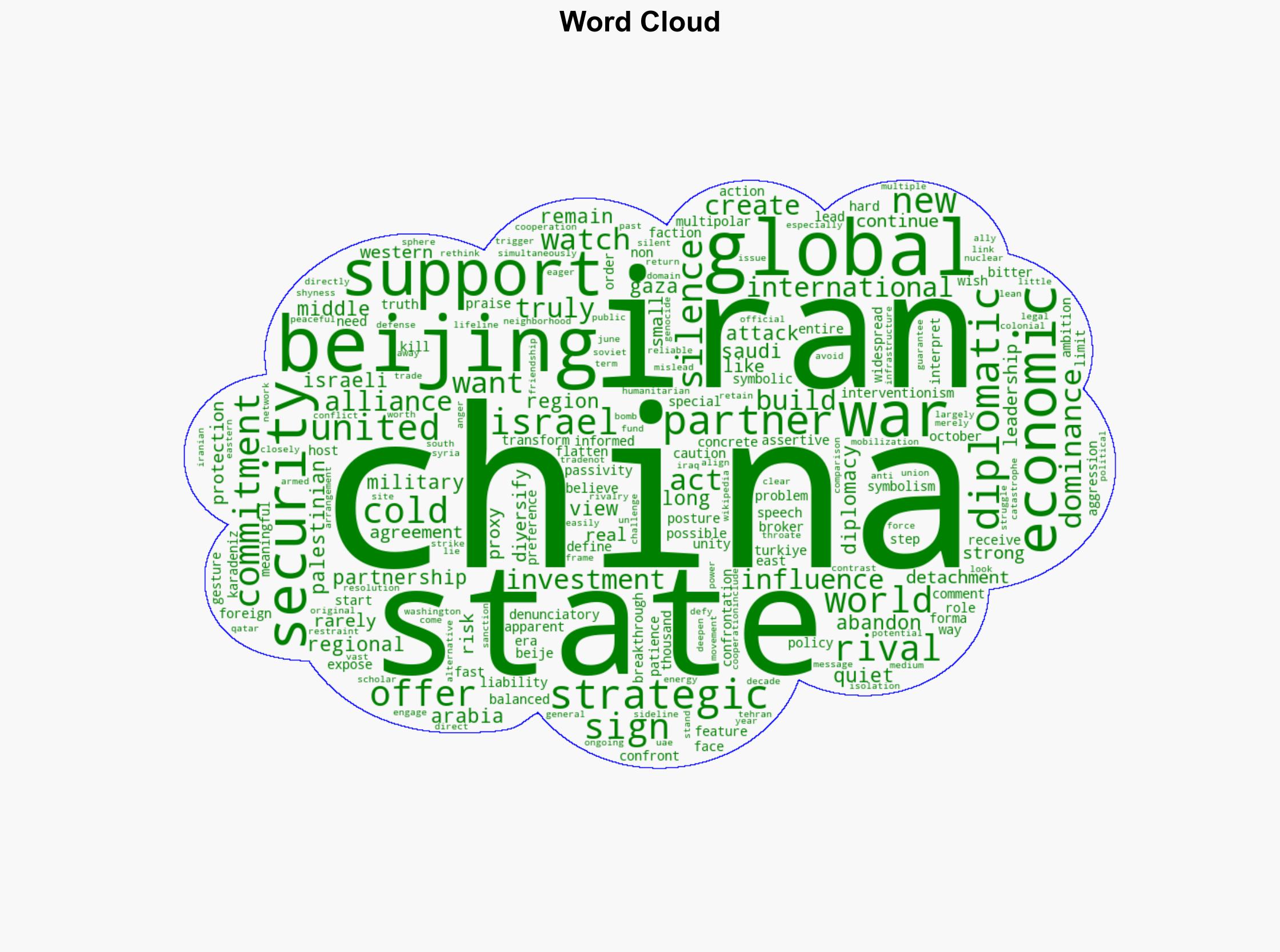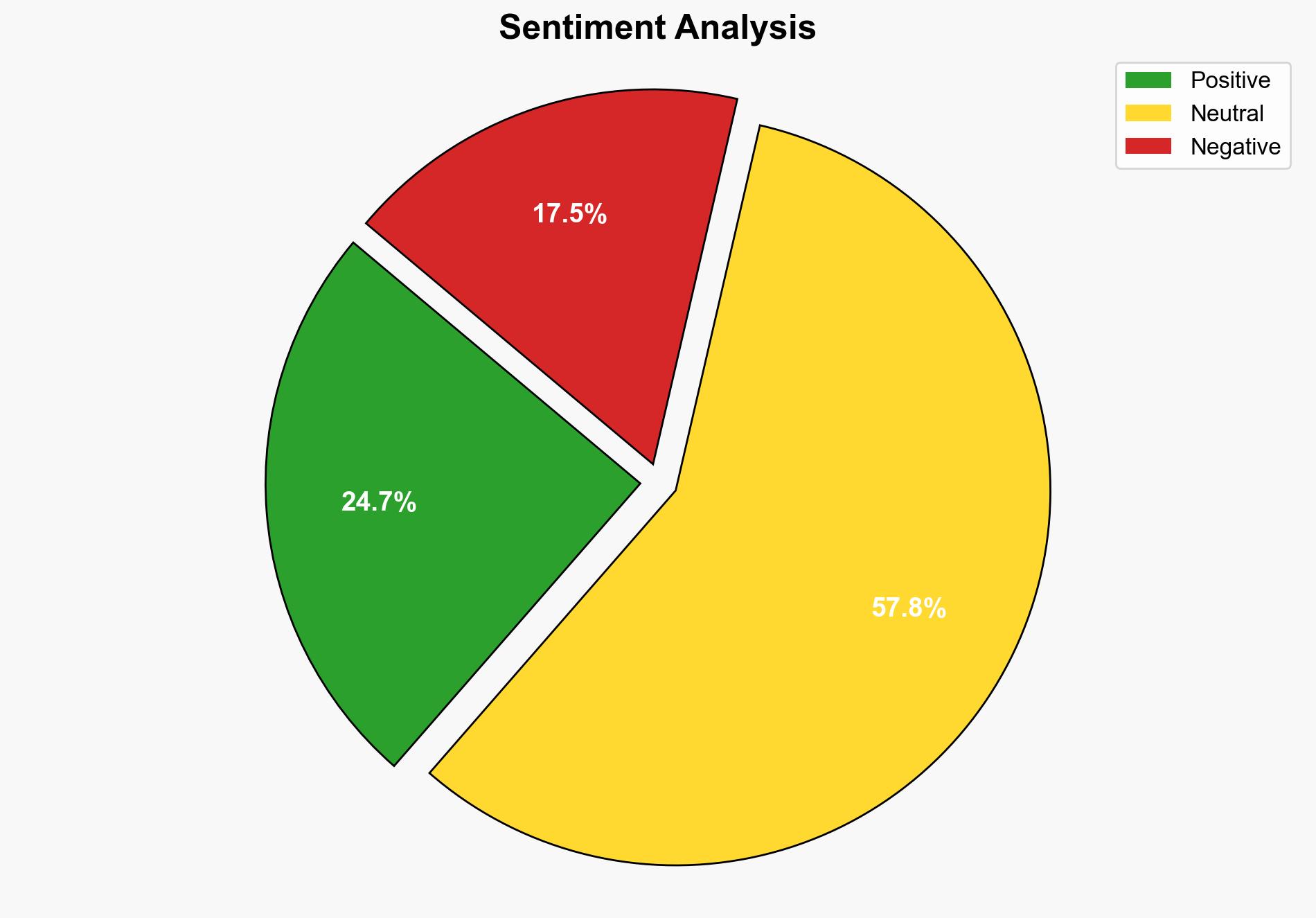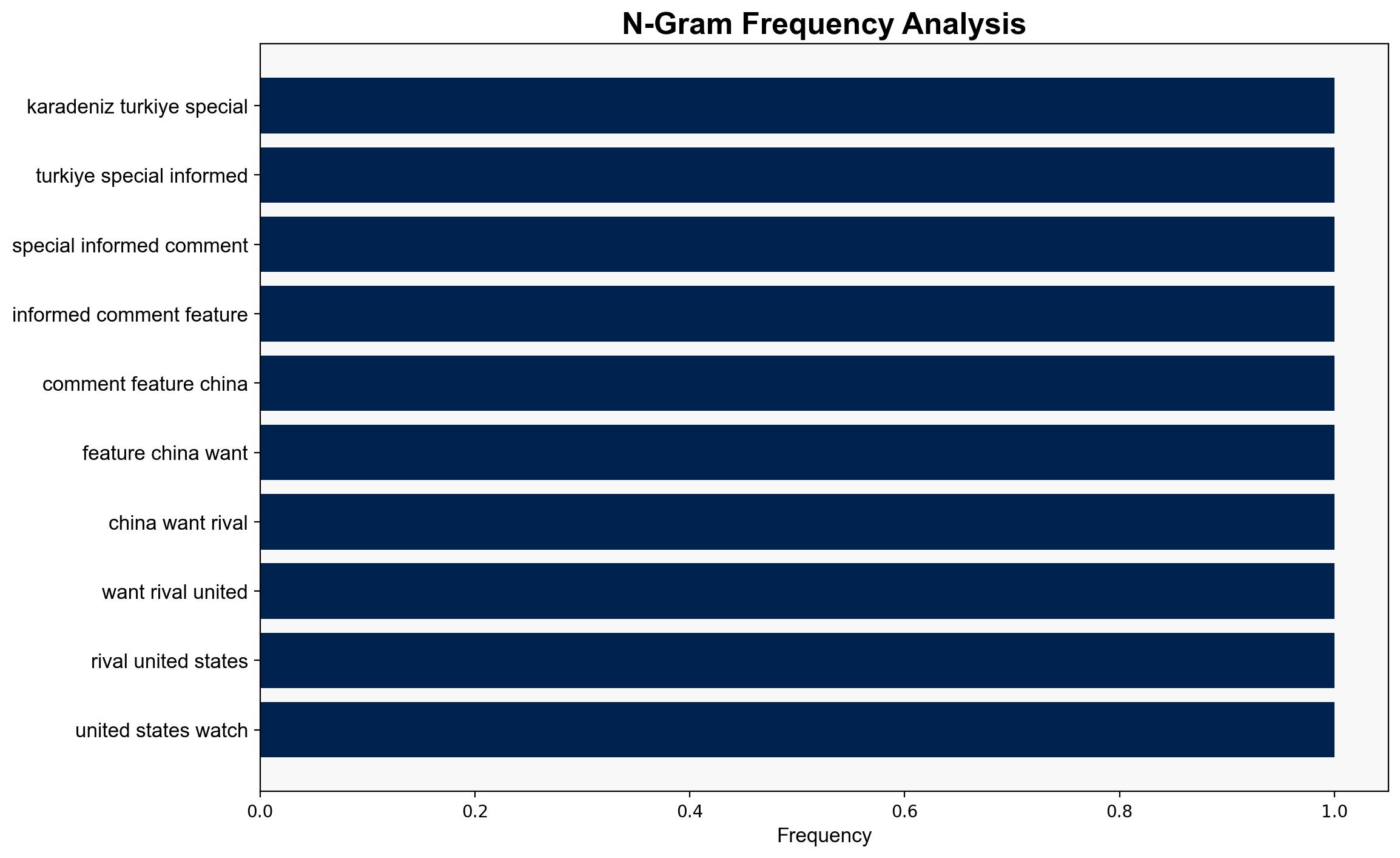Why Chinas Inaction on Palestine and Iran Weakens its Global Standing – Juancole.com
Published on: 2025-07-04
Intelligence Report: Why China’s Inaction on Palestine and Iran Weakens its Global Standing – Juancole.com
1. BLUF (Bottom Line Up Front)
China’s passive stance on the conflicts involving Palestine and Iran highlights its limitations in global influence, despite aspirations for a multipolar world order. This inaction risks undermining China’s credibility as a global leader and may deter smaller nations seeking alternatives to U.S. dominance. Recommendations include reassessing strategic partnerships and increasing diplomatic engagement to bolster China’s international standing.
2. Detailed Analysis
The following structured analytic techniques have been applied to ensure methodological consistency:
Causal Layered Analysis (CLA)
China’s non-interventionist policy is rooted in a historical preference for economic over military alliances. This approach is increasingly seen as inadequate in addressing complex geopolitical conflicts, such as those in the Middle East.
Cross-Impact Simulation
China’s economic ties with Israel and strategic partnerships with Iran create conflicting interests, limiting its ability to take decisive action. This balance is precarious and could destabilize if regional tensions escalate.
Scenario Generation
Potential futures include a continued passive stance leading to diminished influence, or a strategic pivot towards more active engagement, enhancing China’s role in global conflict resolution.
Network Influence Mapping
China’s influence is primarily economic, with limited military or political alliances in the Middle East. This restricts its ability to project power or influence outcomes in regional conflicts.
Narrative Pattern Analysis
China’s narrative of a peaceful rise and non-intervention is increasingly challenged by expectations for more assertive global leadership, especially in conflict zones.
3. Implications and Strategic Risks
China’s reluctance to engage in Middle Eastern conflicts may lead to a perception of unreliability among potential allies. This could result in strategic isolation and reduced influence in shaping global norms. Additionally, economic dependencies on regional actors like Iran and Israel may become vulnerabilities if geopolitical tensions escalate.
4. Recommendations and Outlook
- Enhance diplomatic efforts in the Middle East to mediate conflicts and build stronger alliances.
- Consider diversifying strategic partnerships to include military and political dimensions.
- Scenario-based projections:
- Best Case: China increases its diplomatic presence, gaining influence and credibility.
- Worst Case: Continued inaction leads to diminished global standing and strategic isolation.
- Most Likely: Incremental engagement with mixed results, maintaining economic ties but limited political influence.
5. Key Individuals and Entities
Xi Jinping, Hassan Rouhani, Benjamin Netanyahu
6. Thematic Tags
national security threats, geopolitical strategy, Middle East diplomacy, China foreign policy





